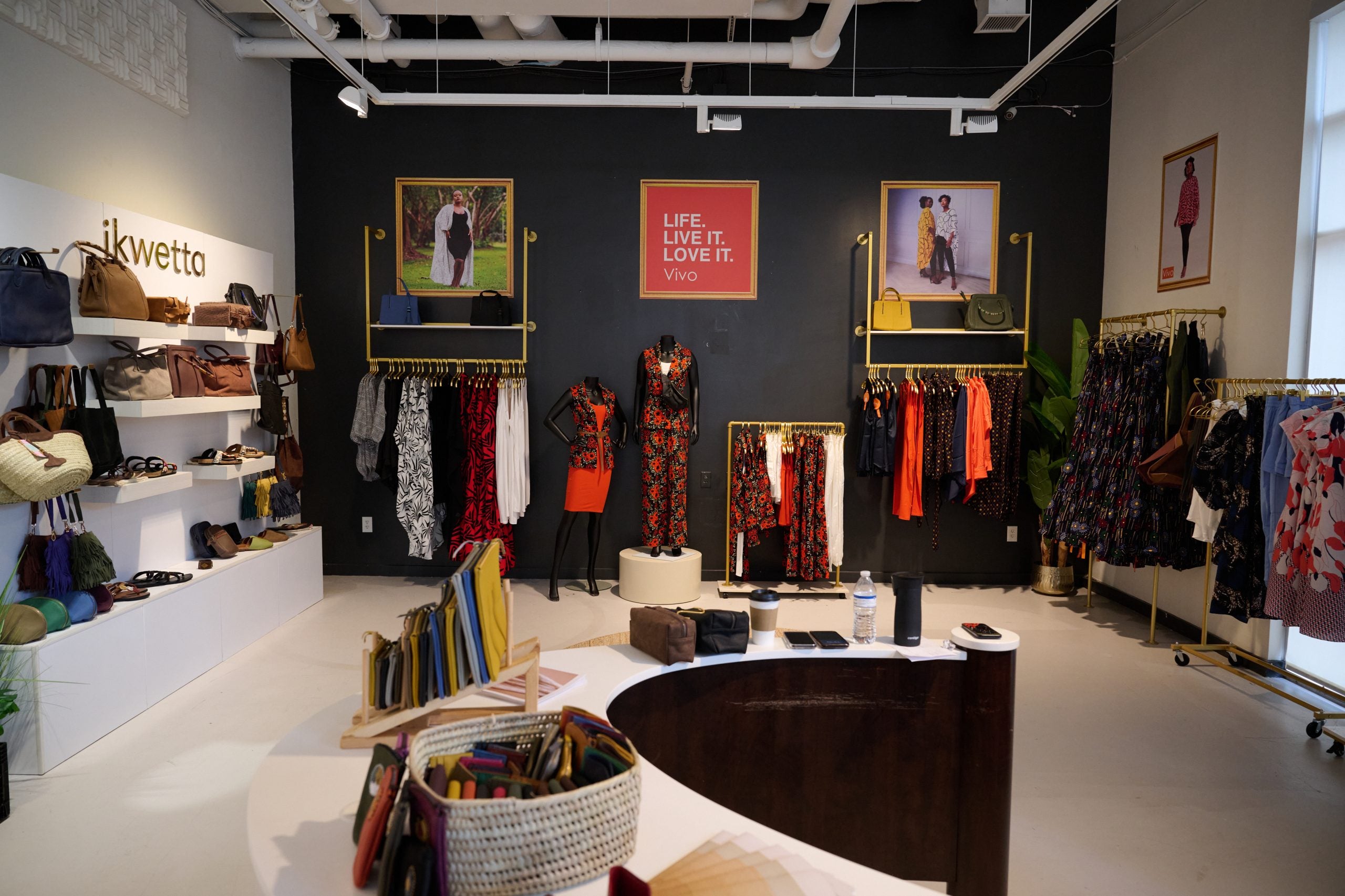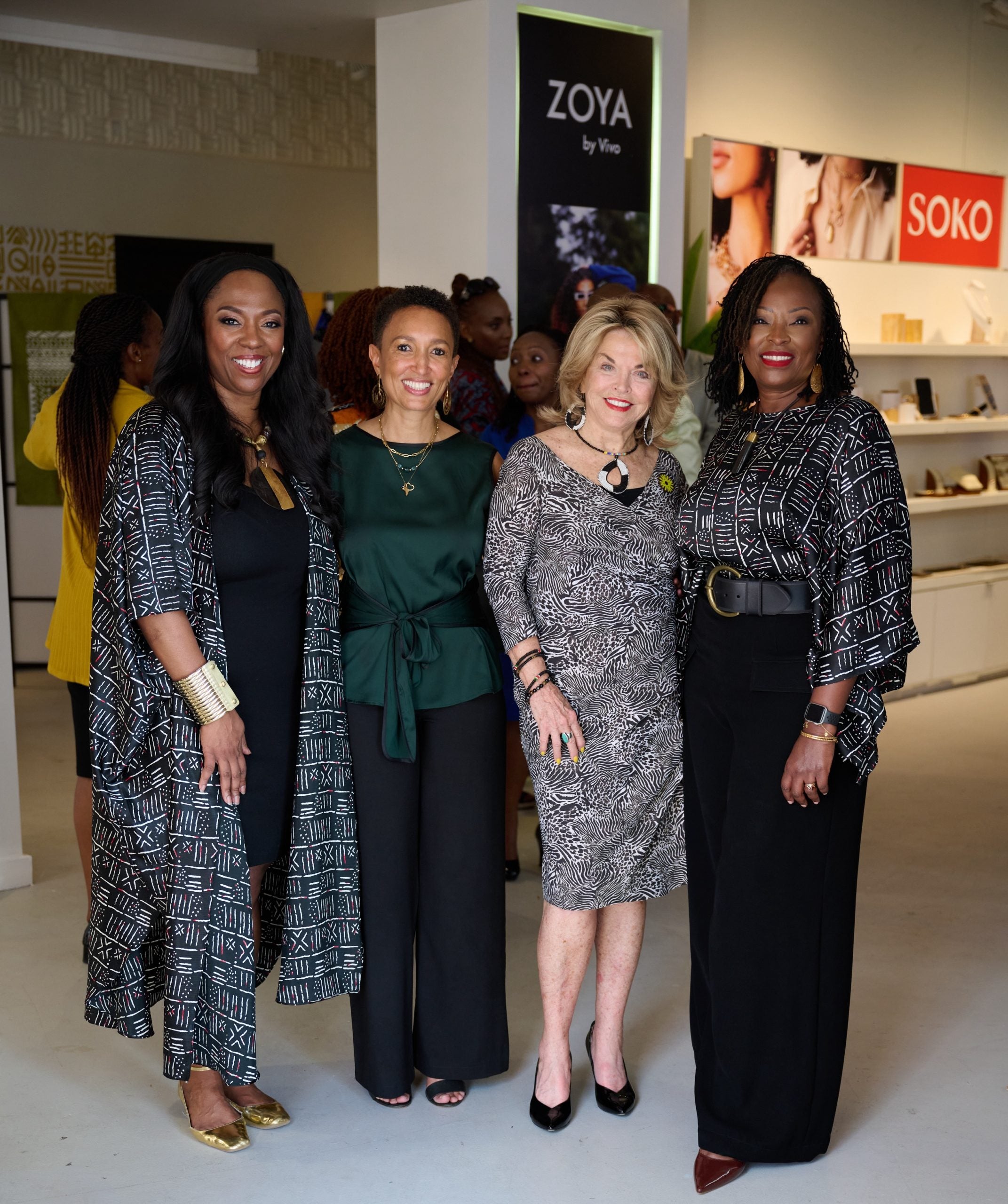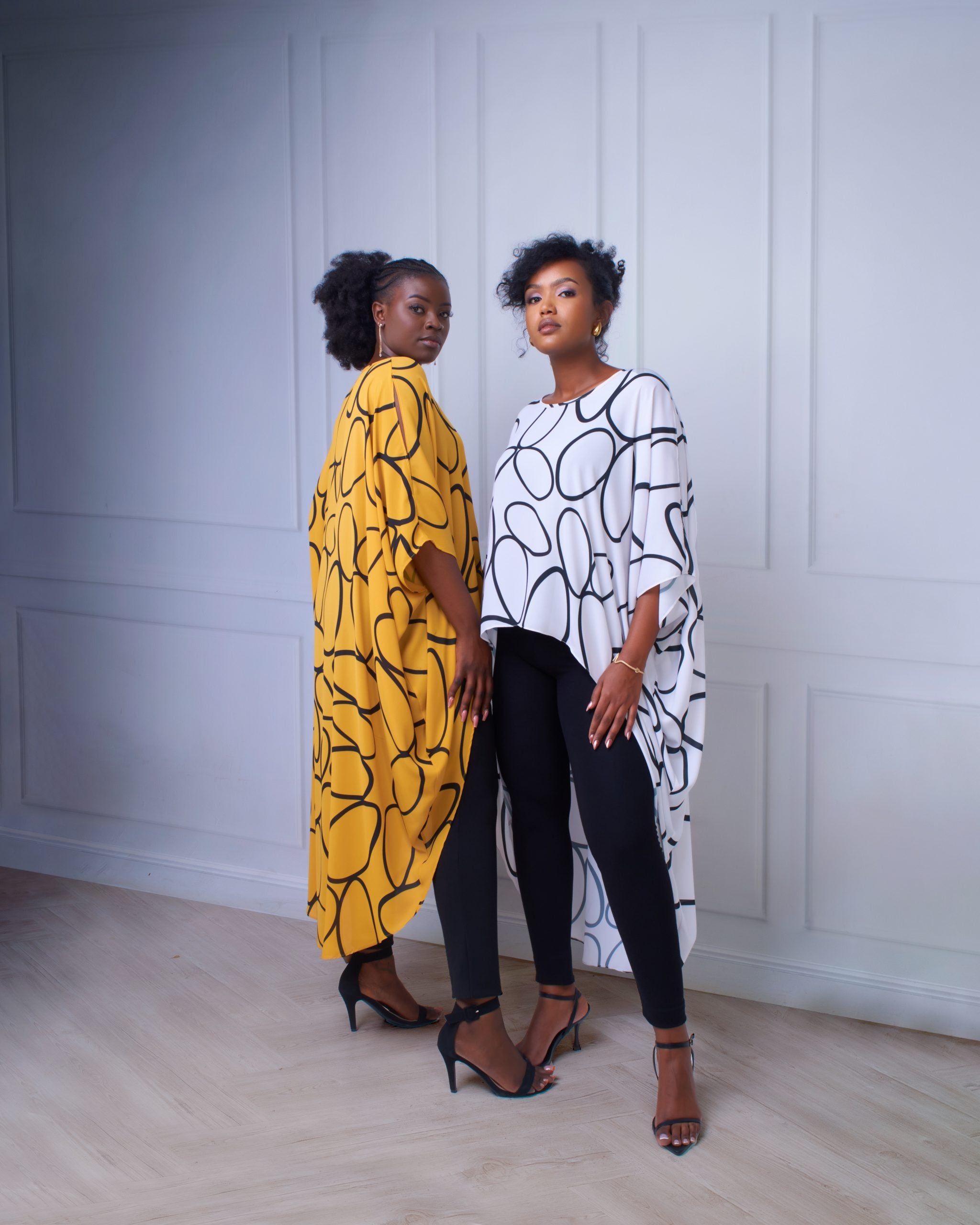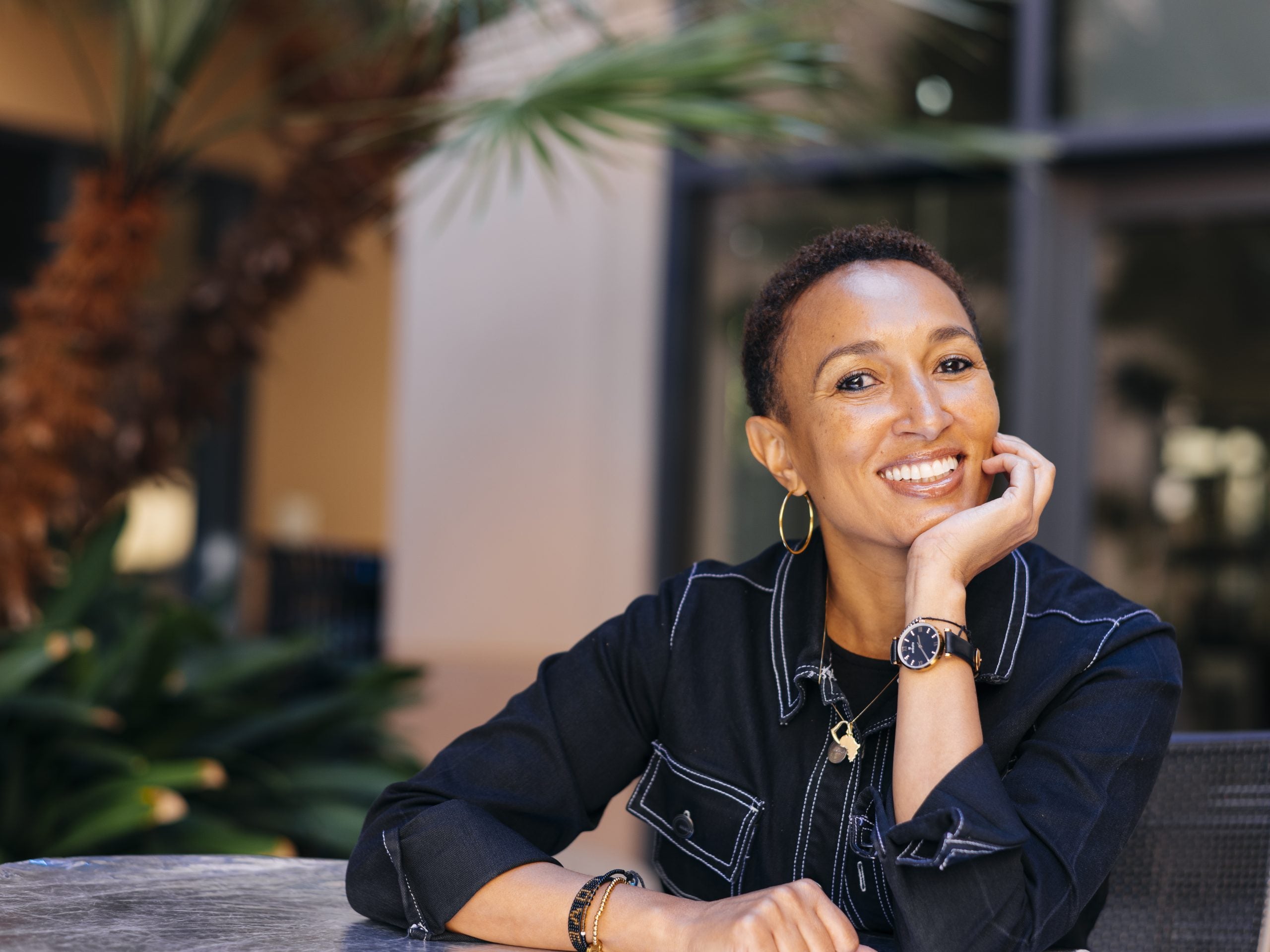
Wandia Gichuru, Vivo Fashion Group’s chief executive officer and co-founder, has a warm demeanor that comes out immediately as soon as she joins our video call. Laughter comes easy to her, and a hint of curiosity points to a key trait worth having as an entrepreneur. To some, the brand she’s been building for 13 years has been compared to the fashion behemoth Zara. But from what she tells me, Vivo appears to be largely different. By offering size-inclusive cuts that were functional and affordable, Wandia proved there was a need for this type of clothing.
Based in Kenya, the brand has storefronts in multiple African countries and now has over 11 storefronts. She explains that the brand began when she realized there weren’t many Kenyan companies producing clothing on a mass scale. “It was new; it was something different,” she tells me.

Over the years, she’s learned to listen to what her customers want and are searching for. That’s what led her to eventually launch her latest feat, a storefront in Atlanta. Gichuru was attracted to the Southern city for a few reasons. In her own words, “It’s got a large affluent African-American community. The weather’s not too harsh,” she says. Wandia also expresses that the cost of living isn’t too expensive and that finding retail space there wasn’t too difficult. The opening of the boutique coincided with a visit from President William Ruto and First Lady Rachel Ruto of the Republic of Kenya.
Wandia was encouraged to delve further into the African-American demographic after participating in SOKO Market during last year’s ESSENCE Festival (the brand will return again this year). While representing her company there, she said individuals who were unfamiliar with the brand gave honest opinions on the clothing. She was inspired by these conversations–in fact, they sparked the idea of launching a brick-and-mortar store in the U.S.

She is hopeful that the newly launched store, located at the popular Atlantic Station, a popular mall and residential area will become a hub for community events. She notes that there is a seating area within the brick-and-mortar to provide comfort for customers to sit leisurely or drop in when they please. In addition, she shares that a pop-up for entrepreneurs is underway this month.
From what she details, the Vivo will not only sell the Vivo brand. Gichuru mentions that they will also sell a leather goods brand and a candle brand. “All the brands are 100% made in Africa. In fact, they’re 100% made in Kenya and they’re all being run by women.” The root of the new storefront is to create a calming and friendly environment for shoppers. “It’s not like your stereotypical zebra rug thing, that’s not what we’re saying. It’s more of a modern, more contemporary African vibe,” she adds.

Below, we catch up with Wandia Gichuru to discuss Vivo’s core, the new Atlanta storefront, and more.
Can you tell me a bit about the brand, especially for those who aren’t familiar with Vivo?
I know there’s a lot of people who go to Ghana over New Year’s. When we started there were very few Kenyan brands that were producing clothing on a mass scale. It was something that hadn’t really been done in a long time. And what’s good about producing locally is you get to make exactly what your market wants because you’re producing really close to your market. You’re not just buying product that somebody else designed somewhere else for a different consumer, and then trying to make it work. And what we learned or realized was that so many Black women were struggling [with their] whole body shapes and sizes and silhouettes.
I think global fashion isn’t always that inclusive, so the sizes are more limited and the shapes don’t always work. When we started to make [clothing] locally, a lot of people found that they just loved the fact that they could come into the store and buy something that fit, and they didn’t have to go and adjust it. And that really is what made the brand popular is the fact that the product worked for the consumer. And so, we just kept growing and expanding.
What else can you tell me about Vivo in regard to expanding beyond Kenya?
The reason that we’ve wanted to expand beyond East Africa, because we now have stores in Kenya, Uganda and Rwanda, is because we kept getting anecdotal evidence. Kenyans would travel to the US and take Vivo product with them and people would say, “You’re not taking this back. I’m keeping it.” Or people would say, “Oh, you’re coming from Kenya. Bring us stuff from Vivo.” And I was like, “That’s weird.” I mean you’d think that there’s so much available in the United States and [other] places.

Who would you say is the customer you’re marketing to?
It’s typically like a woman mid-30s and up. So, it’s usually somebody who’s probably a mother, maybe has added a couple of pounds, is busy, but still wants to feel good, look good, but doesn’t want to spend a fortune and wants to know that they’re buying something that they can use again, can be versatile.
During your time in Atlanta for the opening, did you notice any differences between your Kenyan customers and American shoppers?
We were selling more shorts to the US consumer base. Very few 45-year-old Kenyan women would wear shorts unless they’re on the beach, but they wouldn’t wear it to just walk around. But I think in the US, people are a little more confident. They’re not as shy about wearing what they want to wear. So, I think within our entire catalog, what we need to figure out is which styles really resonate with which market, so we’re not saying it’s exactly the same.
What else have you been picking up on since the launch in Atlanta?
The product seems to resonate because I think people are looking for something that’s a little different, that has a story behind it. A lot of people do like the fact that it’s a Black-owned brand, but they also resonate with the fact that it’s a women-led business that comes from Africa. And the fact that we make our products in Africa means that we’re creating jobs and we’re creating opportunities and we’re having an impact. We employ almost 500 people in the business and 70% of them are women, 70% are under 30 years old. Yeah, I think as we scale, we just want to create more and more opportunities. So, I think that the vision is to see how can we create a great product that speaks to our customers, but at the same time, is creating economic opportunities for people on the continent.
What do you think makes Vivo unique in the global fashion industry?
We’re still a small company but I think what people like is the fact that it’s Kenyan [and] it’s an African story. So, we like to say that we’re made in Africa for the world. We want to serve our community, the community of women of color or anybody else, to be honest.
The ESSENCE Festival of Culture™ presented by Coca-Cola® will take place July 4-7. For more information and updates on the festival, visit our website and follow us on social media @ESSENCEFest on X, Facebook, and Instagram.







